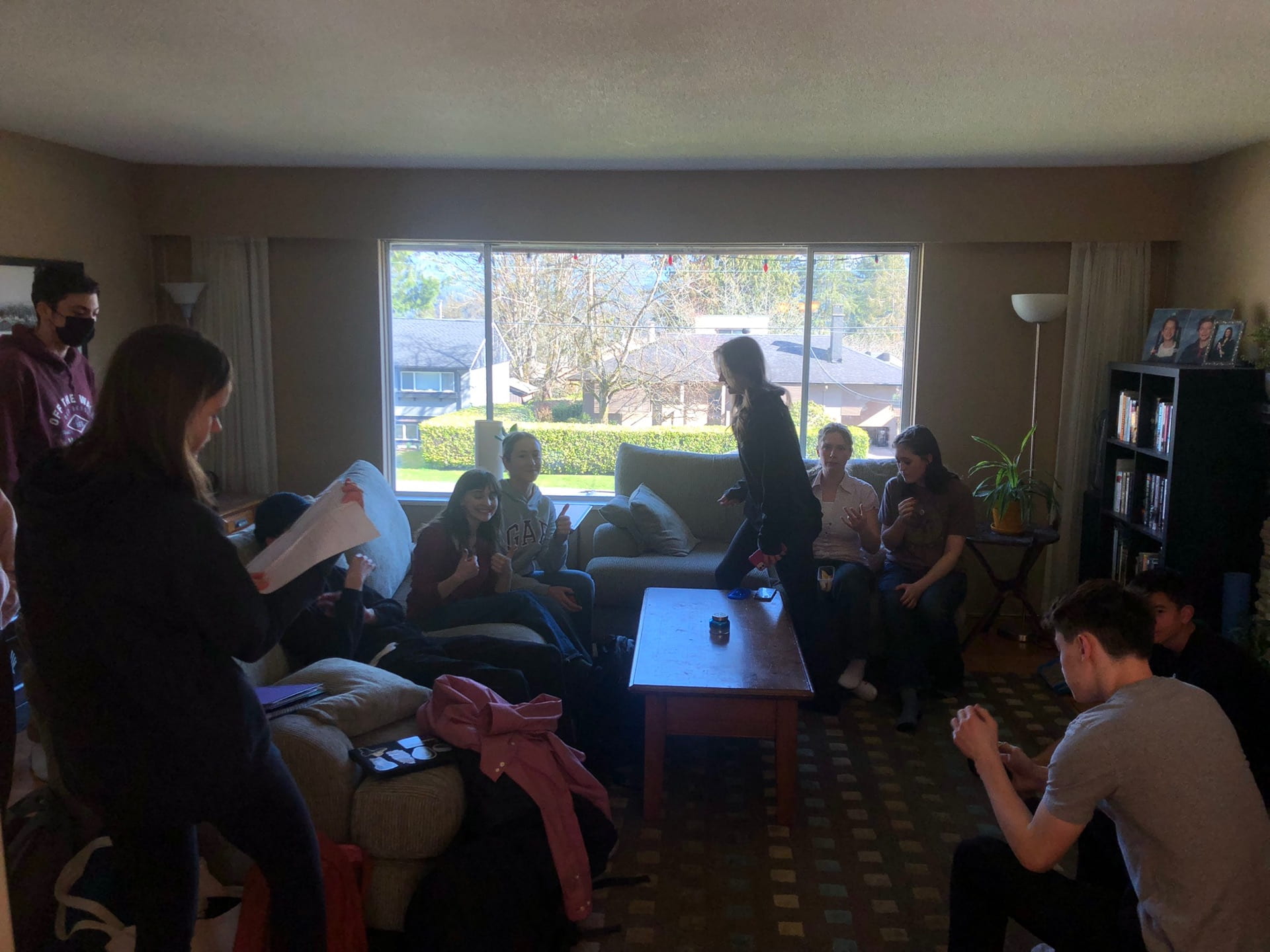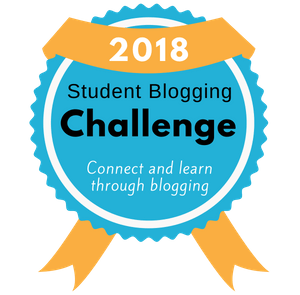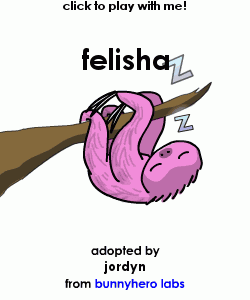Hi everyone and welcome back to My Dog Ate My Blog! I hope everyone had a fabulous, rejuvenating spring break (if you didn’t have a spring break, I hope you are having a great start to spring) because I sure did and I am back and better than ever! In fact, I am currently writing this blog post from an airplane flying over Minnesota on my way home from Mexico which is quite difficult because the plane is a lot louder and more bumpy than I remember so I apologize if this post is a bit jumbled.

Anyways, enough of that. It’s time talk about our latest and greatest (it may actually be the greatest) project we have just finished in PLP Humanities 11/12, a project we like to call Macbeth and the Cold War. You are probably wondering, as you usually do at the beginning of my posts, how one of Shakespeare’s fictional plays connects to a real, significant time period in our history. I don’t expect you to connect these dots on your own because I have already done that for you and that is exactly why I am here, to answer this question:
How might we create a compelling vision of Macbeth in the 1950’s?
To portray this connection in a creative and entertaining, yet sophisticated, way our task as a class was to research, write, film, and edit a short film. As a class. AS A CLASS. I remember thinking at the beginning of the project, “How will this work?”, because we are a class of around 20 people and being able to all work together was a challenge that I never thought we could overcome. This is especially true because PLP has attempted this project three times before and the movie has never been finished successfully so really, why would we be any different? In this blog post, I will answer this question as well as the driving question as I explain my role in the movie production, my learning throughout the project, and my experience. Without further adieu… lights, camera, ACTION!
1. First we read Macbeth and watched the film, studying character development, significant plot points, and themes
2. Listen to lectures from Ms.Willemse and take literature notes on the 1950’ and the Cold WAR
3. Apply for and be assigned a role in production
4. Create a three act structure and finalize the story based on the Macbeth and 1950’s research
5. Write script an storyboard (each person in the class wrote a part of the script and a part of the storyboard)
6. Cast characters (I am police officer #2 and I get to die!)
7. Film film film film film
8. Edit all of the shots in post production (thank you to Alex, Angelo, and Anders)
9. Show the movie!
HIGHLIGHTS
Honestly this entire project was a highlight but this post would end up being a book if I wrote about everything we did which is why I gave you a quick summary above instead.
As always, I will tell you about a couple of my highlights which consist of the parts of the project I enjoyed the most and the parts I learned the most from. So let’s start with the three act structure that I wrote:

After the Acts 1-3 Quest which I will talk more about later, this is when I really understood Macbeth, the play, and was able to connect it to and set it during the Cold War. This was not supposed to be a huge assignment but once I started it I couldn’t stop. I was so interested in the story I was creating that I fully developed and brainstormed an entire movie over a weekend. We ended up bringing each of our three act structures to class and sharing them with each other in a sort of tournament and mine made it into the top two which I was very proud of. In the end, we all gravitated towards our wonderful director, Kaia’s, structure because she had had a very solid vision of what the movie would look like from the beginning but we did end up keeping parts of mine so see if you can find them in the movie!
Kaia and I’s structures were very very similar so by writing mine so in-depth, I was able to fully comprehend the plot and connections to history as we were filming. I was able to deeply analyze our screenplay and organize filming days because I developed such a stable understanding from the beginning through this three act structure.
- Our filming schedule!
- My annotated version of the screenplay
My second highlight was definitely working altogether and filming as a class. One of my goals from the beginning of the year was to step outside of my comfort zone and begin using my voice more vocally rather than through writing so I took on the role of producer thanks to a little push from Ms.Willemse. This was definitely not the role I was expecting to take on but I am so so glad that I took it. It gave me the opportunity to truly immerse myself in the filming process and get to know everyone in the class much better than I had before. It gave me the opportunity to be a leader but also to delegate tasks and no try to control everything because that would not be possible. At all.

We filmed all of the shots in the “Macbeth House” at my house which, as you can see in the photo above, was quite the production. It was challenging and nothing like I had ever done before but that only made me enjoy it more. Here is Grace and I holding a blanket up behind a window so it would look like nighttime while Fraser was filming:

NOT-SO HIGHLIGHTS
Ok! Now that we have celebrated it is time to… not celebrate, with highlight there always comes low lights and places for improvement or what we like to call deltas. You know like delta s and delta v? Oh wait that calculus not humanities. Don’t mind me!

This is a chart that we created in class to help us organize our thoughts about the project! I thought it was pretty cool and a really good way to prepare for a blog post. OK! That’s enough highlights, lets actually talk about the deltas.
First things first let’s talk about what I would change personally or what I really didn’t enjoy about the project. One word: Quest. A quest is a quiz/test if you did not know an dint he context of this project, the quest was an in-class writing activity we each participated in that I really struggled with. I think, at the time, I was having trouble understanding the plot and themes of Macbeth so it was definitely challenging, especially on top of the environment I was writing in. I was very distracted. Of course, I over-thought the assignment an went too in-depth so I revised with some guidance and finally reached an extending level of learning.
- From this…
- To this
This was actually a very important low light for me as a growing learner. It showed me that going above and beyond is not always the right way, quality over quantity.
The other thing I would like to have spent more time doing was creating literature notes based on the Cold War. This was definitely the piece that was missing for me as I really understood the play. To make this project better, the one thing that i would have wanted more of is this Cold War content. I know we were supposed to be taking literature notes through out the entire project but I found it difficult to know what to research as a lot of it didn’t really correspond with the story we were developing. I think some guided research or research ideas would be awesome and a great place to start in improving this project. The one other thing is maybe take out a couple of the roles as a lot of people were left doing nothing. There could always be two directors and two producers and several screenwriters who are at equal level because I think the hierarchy left some people wondering if they should be doing something or if their superior should.
Finally, reflecting back on the project, we definitely could have improved our communication strategies as there was lots of lack of communication between certain groups. We did have our Basecamp Campfire chat but maybe having an iMessage group chat with everyone would have been a good idea to remind each other about filming, costumes, voice overs, etc.
FINAL MOVIE
Coming soon….
Alright! Just an update if you were wondering, I am no longer on the plane and am writing this conclusion at home. Ok, let’s bring this to a close. This project was by far one of my favourites as I love group work and Shakespeare. I believe that I learned very important lessons about what it means to be a leader in a more realistic setting which is crucial as I move onto life after high school. *sad sigh*. There were some highlights and some lowlights but they were equally as important in helping me grow as a communicator, a creator, and an organizer. Now to answer the driving question, JUT LIKE THAT! That is what it takes to create a compelling film connecting Shakespeare’s Macbeth to the Cold War in the 1950s. Read this post again and that is what it takes (ok maybe don’t do that, it’s a pretty long post but I think you get the idea). It takes successes and it takes failures, it takes real teamwork and intense, meticulous planning to execute this but we did it! I hope you enjoy the movie just as much as I did making it and I will see you on the next My Dog Ate My Blog post!
Jordyn Eyton signing off!







April 21, 2022 at 12:56 am
Hello Jordyn!
I enjoyed reading your blog post– it was very compelling. I find it interesting how you learned that quality is oftentimes more important than quantity… I’m oftentimes guilty of overthinking and not being concise enough too!
I did want to ask: how did you manage to insert a drop down menu into your blog for the “Quick Overview of the Steps…”?
Thanks! 🙂
April 21, 2022 at 8:34 pm
Thanks so much Ariane!! I’s so glad you enjoyed my post 🙂 Overthinking and overcomplicating is one hundred percent one of my biggest weaknesses when it comes to projects. It is definitely something I want too focus on overcoming in my next project!
For the drop down menu, you click on “add shortcodes” above where you type your blog posts, where the “add media” button is. Once you do that, you can either choose “Accrodion” or “Toggles” (they both work” and then customize the text, colours, and shapes of the drop down! Hope that helps!!
Jordyn